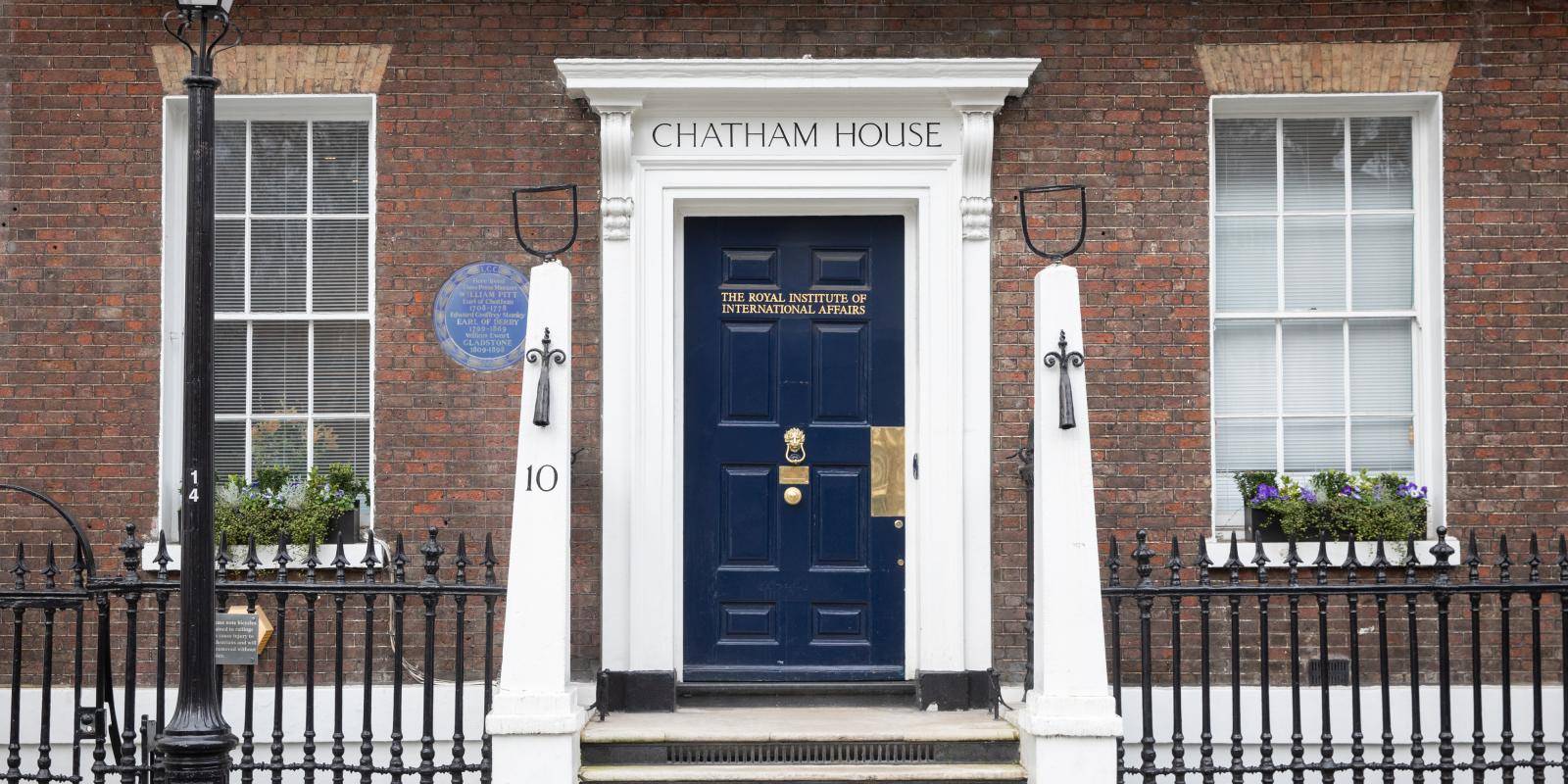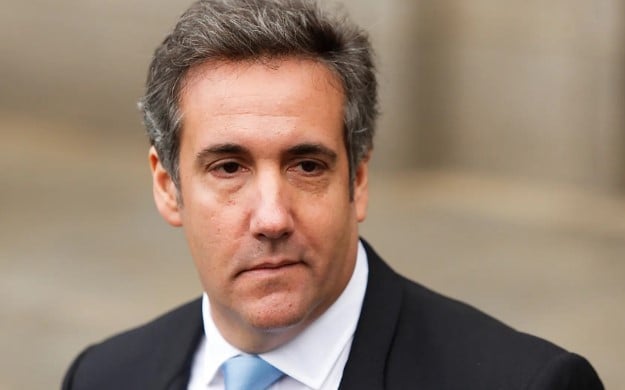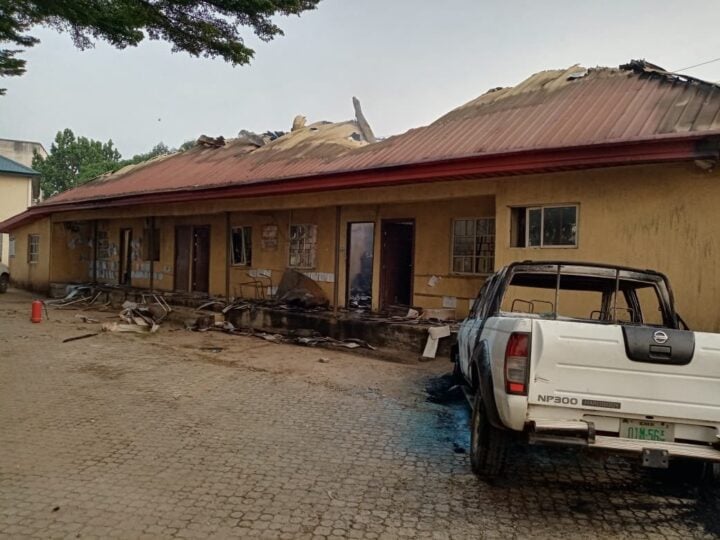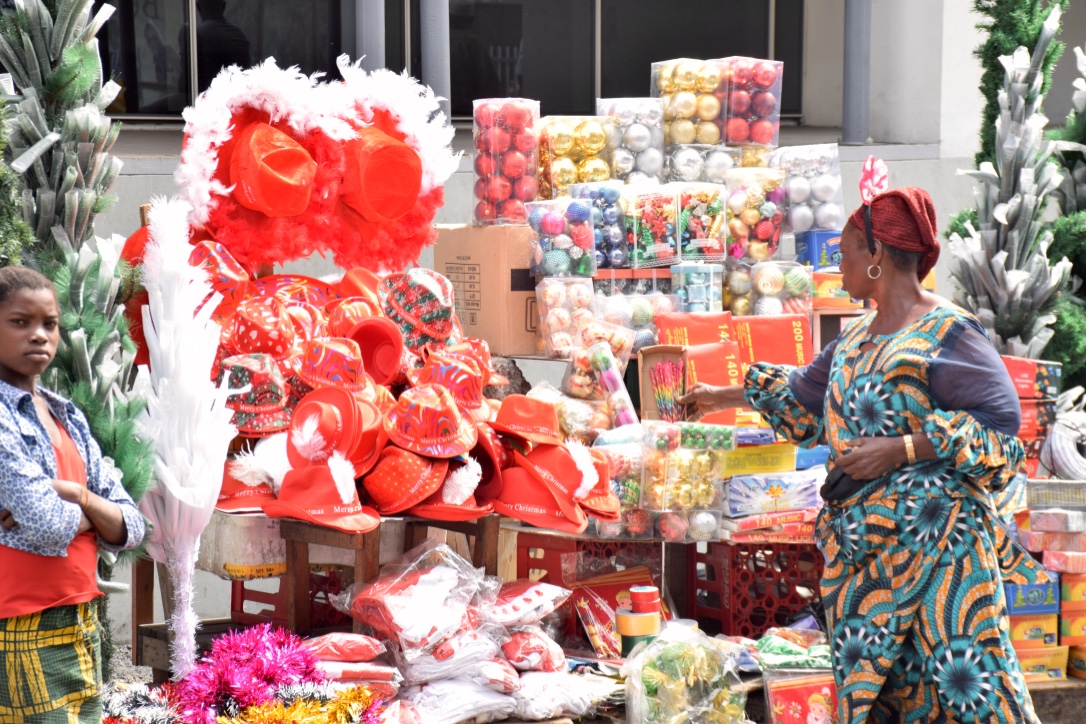As part of the rites during every season of electioneering, across democracies, engagement between candidates seeking one political office or the other, and the electorates are not uncommon. It is usually one of the avenues for candidates to sell their candidatures to the people they aspire to lead or represent. It, therefore, stands to reason for one to expect such a critical electioneering activity to be primarily limited, in scope, to the spatial jurisdiction of the constituency such candidates seek to govern or represent. But in the case of the presidential race in Nigeria, the contestants are fond of going to places like the famous Chatham House in London, and so-called town hall meetings in the US with the pretext of meeting with Nigerians in the diaspora even when the people they are aspiring to rule, and whose votes they need in order to be declared the winner are based here in Nigeria, about 90% of whom have never been to Seme border, let alone, travelled to the UK or US.
Sometimes, they would claim to be interfacing with the investing world, with a view to luring prospective investors to the country. At the end of the day, all we see are a handful of suit-wearing white guys, whose statuses we are not sure of. Our politicians, against the dictates of common sense, find it fashionable to leave behind those who would vote (the supposed beneficiaries of their proposed policies) and go talk to those whose main interests in Nigeria are no more than what they can squeeze out of our ailing economy.
This current political season is no exception. On Monday, December 5, 2022, the presidential candidate for the ruling All Progressives Congress (APC), Asiwaju Bola Ahmed Tinubu, was at the Chatham House in London to sell his candidacy to, one would say, Nigerians in the diaspora assuming one wants to toe the line of giving them a “soft-landing”. I have been made to understand that the candidates of the People’s Democratic Party (PDP) and the Labour Party (LP), Alhaji Atiku Abubakar and Peter Obi, respectively, will soon follow suit as well. How well, or otherwise, they perform on the podium as far as the articulation of speech is concerned is another story entirely. That has opened another vista of debate, as to their suitability, or otherwise, for the job they’re auditioning for.
Arguably, Nigerians in the diaspora are major stakeholders in “project-Nigeria”, at least the fact that they make remittances to their people back home which somewhat boosts the economy.
Although they remain disenfranchised, as they do not enjoy the right to vote from abroad because no provision was made for that in the electoral act, they reserve the right to be addressed by those who aspire to govern the country. So if vote-chasing is a major reason for such an engagement, then it stands to reason that one should expect politicians to embark on such an engagement or consultation here in Nigeria where the bulk of the voters is resident, without going as far as to a place like the UK. But you and I know that they only go to such platforms in search of validation from their foreign “Kingmakers” with no legitimate king-making mandate.
Advertisement
I know, many would argue that Chatham House, headquartered in London, is an international institution known for being a policy think tank which prides itself as “an independent, and a trusted forum for debate and dialogue”. It is of international repute, no doubt. It claims that its research and ideas help people understand the changing world, in which we live. That is not contestable. Perhaps, that explains why it is an institution of choice for people who seek public office, for the public good, and not for self-aggrandisement.
Having said that, I am always confounded by the craze with which Nigerian politicians patronise those institutions despite being aware that there are similar institutions in Nigeria that could be leveraged and popularised. And even though they know, as much as you and I do, that they’re not going to implement anything close to what has been theorised in Chatham House, if and when voted into office, they still make sure they attend, and talk, tongue-in-cheek, before a global audience. Unless, if somebody is telling me that the “Agbo-Jedi” politico-economic philosophy (popularised by a former governor of Ekiti state, Ayodele Fayose) which found its expression in what is now referred to as the “stomach infrastructure”, is a product of Chatham House’s “think-tanking”. Agbo-Jedi is a local medication for dysentery and other associated ailments like backache and erectile dysfunction. Metaphorising it is premised on the immediacy of its efficacy, just like the “stomach infrastructure” is meant to be a quick fix to (palliative for) hunger. But, whether it emanated from a think tank institute or not, is not the issue here.
Even though I understand that Nigeria requires some international collaboration, multilateral and bilateral, to be able to effectively implement some socio-economic policies which necessitate her (prospective) leaders reaching out to the international community, I would never understand why they fail to test the popularity of such proposed policies with the prospective voters who are the target beneficiaries, back home, through local media engagement. It beats my imagination, as to why they have chosen to be travelling all the way to a place like London or Washington, DC to conduct such an engagement on platforms to which more than half of those who are eligible to vote do not have access. One becomes more confused, especially, when one remembers the fact that, there are similar bodies or institutions in Nigeria that could host such an event, with local media outfits available to relay proceedings to Nigerians who have attained the age of voting, and a global audience in real-time. But this inexplicable inverted logic has characterised the electioneering activities of presidential, even gubernatorial candidates, in every election season, lately.
Advertisement
With Nigeria, being a country that attained independence over six decades ago, one would think that by now all the vestiges of colonialism should have been done away with, but here we are. That, those who aspire to rule us, as a sovereign state still need some kind of validation from those they’re expected to rub shoulders with at the global level, leaves much to be desired. It becomes more irksome, when one considers the fact that, institutions like the National Institute of Policy and Strategic Studies (NIPSS) Kuru, the Nigerian Institute of International Affairs (NIIA) Lagos, and Pọju Oyemade’s “The Platform” are capable of hosting such a policy think-tank, discourse.
But for reasons bordering on colonial hangover, our politicians geocentrically ignore these pan-Nigerian institutions and run, heels over head, to Chatham House to showcase to people who are not going to cast a vote, due to jurisdictional restrictions. That does not do justice to logical and sound reasoning, especially, when they’ve failed to even talk to the press back home. As we speak right now, one of the leading candidates’, Tinubu’s campaign team has been at dagger drawn with a media organisation, Arise TV/This Day, over the attendance or non-attendance of town hall meetings with members of the public, organised by the latter. This is a media outfit that has taken it upon itself to organise the meetings between the presidential candidates and members of the public. But Tinubu’s camp is adamant, the former Lagos state governor won’t attend such an event, conceived to embarrass the former Lagos state governor who is believed by many, to be one of the front-runners in the forthcoming presidential election.
Meanwhile, the publisher of THISDAY newspaper and founder of Arise Television, Nduka Obiagbena, rhetorically asked the All Progressives Congress (APC) presidential campaign council to present their candidate like those of other parties, for debate, and nothing more. With the way, they (Nigerian politicians) rush to honour dates with foreign media organisations, I do not understand why they have such disdain for the local media outfit. If such an event were to be organised by a foreign media organisation, they would crawl, if they cannot run or fly, to attend.
Meanwhile, it is unthinkable that a Joe Biden, or a Rishi Sunak, the US president, and the British prime minister respectively, would prefer talking to NTA, Channels TV, TVC or AIT, instead of CNN Fox News, Sky News or BBC. There is one funny response they’d give whenever they are accused of giving undue preferential treatment to the foreign press, at the expense of their Nigerian counterparts – that is, they are engaging with Nigerians in the diaspora, or that Nigerian pressmen ask frivolous questions – that is, even, if you are lucky, your organisation has not been blacklisted. One would then be forced to ask, what happens to their already-prepared press statement? If the pressmen fail to ask you what you think are relevant questions, then is there a crime in you dictating the agenda of the press engagement? And again, none of the politicians has ever taken the issue of “diaspora voting” as a cause that is worth being pursued as a political agenda. Assuming there is even a provision for Nigerians in the diaspora to vote, would that be enough reason to treat domestic voters and the press with such disdain? Oh, sorry, they can always buy their votes, and pay some glorified rumour mongers masquerading as journalists on social media, to regurgitate their press releases, or spread “alternative facts”, I have forgotten.
Advertisement
But, as a nation, we need to get more serious than this self-deceit that has become a national pastime. I wonder why the NIPSS, NIIA and similar other organisations based in Nigeria cannot be made to organise such a debate, with local television stations contracted to live-stream it to a global audience? If Chatham House, why not NIPSS, NIIA, The Platform? If BBC, CNN, Sky News, Al-Jazeerah, why not NTA, Channels TV, TVC or AIT? If New York Time, Washington Post, London Evening Standard, Mirror, or Guardian, why not TheCable, ThisDay, The Punch, The Guardian, The Nation, Leadership, Premium Times or Daily Trust?
With the advantage of information and communication technology (ICT), a global audience can be connected to such an event, if hosted within the shores of this country, and the local audience would still be afforded the opportunity to be part of it via terrestrial television channels, like the NTA, which might not be possible, considering the huge technical and financial implications it would involve if they’re to be connected from outside the country.
Abubakar writes from Ilorin. He can be reached via 08051388285 or [email protected]
Advertisement
Views expressed by contributors are strictly personal and not of TheCable.
Add a comment







